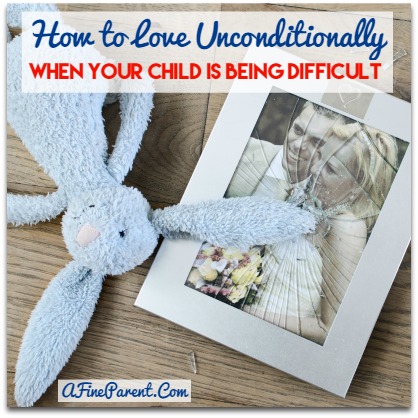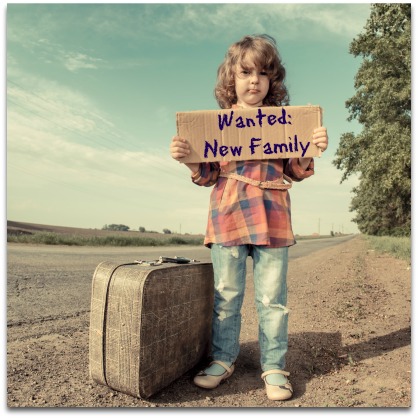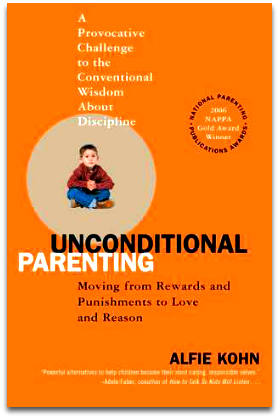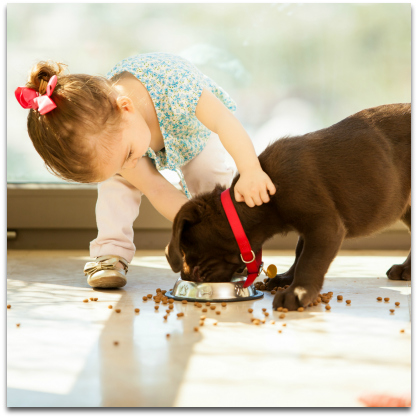 So we’ve all heard parenting experts tell us that the one thing children need most to grow and thrive is unconditional love from their parents.
So we’ve all heard parenting experts tell us that the one thing children need most to grow and thrive is unconditional love from their parents.
It is easy to say that we love our children when they are being good.
Figuring out how to love unconditionally when kids are being really difficult is quite another.
I thought that I had mastered the art of teaching my children compassion, empathy and the love of family. I thought that unconditional love came easily for me.
But that was before I opened my home to my little four-year-old foster son, who came to me kicking, screaming and daring me to love him.
The first time I saw Frank, my new foster son, was at the Loxahatchee Feed Store. His former foster mother was dropping him off. He was too spirited of a child for her and her mother to take care of, she had explained to me over the phone. The agency had thought of me.
The little boy in front of me did not smile. He was a little bit of a boy, with curly black hair and large brown eyes. His skin was the color of milk chocolate. I had fallen in love with him the very minute that I laid eyes on him.
On the second day of my new foster son’s arrival, I woke to the sound of screams. I ran to my living room. Frank had somehow broken my 16-year-old son’s fish tank. Glass and dying, flopping fish were scattered across my floor. Ethan picked up the fish and ran to our canal in a futile attempt to save their lives.
A few minutes later I found Frank heading down my driveway, his backpack and Spider man suitcase in tow.
“Where do you think you are going?” I asked him.
 “I know I’ve been bad. So, I am going to walk down the road and look for a new family.”
“I know I’ve been bad. So, I am going to walk down the road and look for a new family.”
“You are in trouble, yes”, I told him. “But you are not going anywhere. I love you when you are good and I love you when you are bad!”
The next day I sent Frank to his room for a short time out. In a matter of minutes Frank had emptied out the contents of an entire dresser and a bookcase into the hallway in front of his room.
Frank stood hands on his hips waiting for my reaction.
It was then that I knew that I needed a plan.
I made an inventory of things I wanted to see in him. He needed to understand that he was loveable before he could accept love. I needed to see self-control in him. I needed him to feel empathy and compassion.
I then realized that I would need another list of what Frank needed to see in me, such as being capable of disciplining him, while unconditionally loving him at the same time.
These lists gave me a better idea of what practical actions I could take. Here are five of the things that worked for me:
#1 Using books as a medium to express some of these values explicitly
I have always been a lover of books, so I scoured the Internet and bookstores for books for myself and for Frank.
I found literature written by Barry Phillips, an author who writes about the subject of unconditional love in The Natural Child Project very helpful. Phillips says that “the key to a close-knit family is unconditional love.”
Raising a child with unconditional love means that no fear is created in parent-child interactions. To love unconditionally simply means that parents accept their children completely and without restrictions or stipulations. There is no spoken or unspoken message causing the child to think he has to be something other than what he is in order to be loved. The need for unconditional love, he says begins at conception.
I found a few wonderful books for Frank that taught the concept of unconditional love as well.
These 4 are my favorites –
Love You Forever – by Robert Munsch
This is my favorite book. I read this book often to Frank, especially when he was kicking and screaming and not being likeable. The words “I’ll love you forever, I’ll like you for always” gave me patience and encouragement as I read and reread the story of a mother and son, and how the mother loved him when he was a quiet sweet little baby, and a not so quiet teen with a potty mouth.
The Angel and the Wild Animal – by Michael Foreman
This is another book that both children and parents can identify with. Sometimes there is an angel in the house and sometimes a wild animal. But Foreman ends with “but most of the time we have a little boy in our house. These are the times we like best.”
Even If I Did Something Awful? – by Barbara Shook Hazen
In this book a little girl breaks her mother’s vase. She asks a series of questions in which her mother responds that she will always love her child, no matter what naughty things the child does.
I Love You, Stinky Face – by Lisa McCourt
Here a parent tells a child how much she is loved, no matter what.
#2 Adopting the mantra “Parent from love, not anger!”
 This was a great tool when I was too upset to think straight.
This was a great tool when I was too upset to think straight.
Once when Frank was five, he got a hold of the lit Yankee Candle I had in my kitchen and decided to see how my dining room table would burn.
I had to take a deep breath and count to twenty before I spoke.
Author Alfie Kohn in his book, Unconditional Parenting: Moving from Rewards and Punishments to Love and Reason, says that one basic need all children have is to be loved unconditionally, to know that they will be accepted even if they screw up or fall short.
Repeat this mantra often, so you can act instead of react.
#3 Being intentional about taking “me” time
I realized that I could love unconditionally better if I loved myself first.
Self-care could be defined as any intentional actions taken for your mental or physical health.
I made sure to carve out small spaces for my time. I indulged in a bath while reading a great book. I planned an exercise time for myself even if I had to wait till Frank was asleep.
These little chunks of “me” time helped me center myself, so I could love my sometimes-difficult child unconditionally.
#4 Setting clear expectations and consequences
Having clear expectations and consequences already mapped out was very helpful.
We made up charts with chores, expected behaviors and rewards.
Super nanny, Sue Atkins, says that saying “well done” to your child is the best way to promote her good behavior. “Keeping a reward chart is an even better way to promote good behavior because it makes sure you both stop and recognize when she does things right and gives her something to keep at.”
Atkins also says that when parents enforce discipline, children learn self-control.
#5 Putting age-appropriate responsibilities on my child’s shoulders
 I made a chart for Frank of age-appropriate chores that I expected him to do.
I made a chart for Frank of age-appropriate chores that I expected him to do.
Maria Montessori has a chart of “age-appropriate chores for children.” I found these charts very helpful.
For example, two- and three-year-olds can put toys in a box and stack books in a shelf. Four- and five-year-olds could feed pets. This worked very well for Frank.
While he was not always happy to complete his chores, he was proud to have participated, once done.
Teaching and demonstrating unconditional love is not easy, especially when our children are being difficult. It was not easy for me, and it is something I practice on a daily basis.
It has been 4 years since Frank came into our family. He was officially adopted into our family 2 years ago, Christmas. We’ve had our share of ups and downs for sure, but I know that our family is all the richer for having Frank in our lives.
Today Frank is a happy little boy, not perfect but one who knows full well that he is greatly loved on his good days and on his bad. There are some days now when my son informs me that he is angry with me. But now, more often than not, he quickly follows with, “but I still love you.”
The lessons our family learned about how to love unconditionally will stay with us forever.
The 2-Minute Action Plan for Fine Parents
It’s time for our quick contemplation questions. Ask yourself –
- What does “unconditional” love mean to you?
- Do your children feel loved even when they make mistakes?
- Do they come to you for help when they mess up, or do they try to hide their mistakes from you because they are afraid of your reaction?
- What is the one resolve you can make right now that will show your kids that they are loved unconditionally, even when they make mistakes?
The Ongoing Action Plan for Fine Parents
Make a quick inventory of what can help you parent from love, instead of anger.
Put together a list of books you can read together, movies that you can watch together or activities that you can do together during times of turmoil.
Adopt a mantra that you can fall back on for times when things are particularly bad – for instance, “this too shall pass!” or remembering to promise out loud, “I’ll love you forever, I’ll like you for always.” Another one might be, “My job is to teach, not punish”.
Figuring out how to love unconditionally when our blood is boiling and we are blind with rage can be deceptively difficult – some of these simple pre-commitments however go a long way.
Thank you for this article. It is inspiring to see a story of overcoming such a difficult start in life for your little one. I admire your patience and wisdom.
I agree with always loving your child both through easy and difficult times, and with always working to support them to the best of your ability. However, I do have a question around suppressing all traces of negative emotions in front of them. I do think it is important for children to learn that when they cross people’s boundaries, hurt or frighten people and pets, break things, deceive etc. – that it is a natural and valid response for people to feel anger, sadness and fear as a reaction to these actions. And the older the child gets, the more damaging the results of such behaviours become, e.g. other kids will not trust them or want to be friends with them, other adults will not respect them, etc. How do you find the balance between parenting out of love and patience – and helping your child understand the profound negative effects their unkind or unwise actions can have on the feelings of and relationships with other people?
Thank you so much for sharing your story. It has been a good piece for me to reflect on what I do with Abraham, take a deep breath and continue loving him unconditionally as my Father in heaven does. God Bless.
I have read a lot on unconditional love in parenting – and it resonates with our family tremendously. However what’s missing in all of the dialogue regarding unconditional parenting is how to weave it into discipline when our children act out. I have a wonderfully joyful and bright 5 year old daughter who is very kind hearted. She has her moments as any person does – and will push the limits to no end as I try and keep my anger at bay and kindly set limits and consequences. And when this fails I am confused and find myself without additional tools outside of becoming more firm and showing anger – which I am trying with all I have not to. When I do – we always come together and I apologize for loosing my temper. I always tell my daughter that I love her no matter what – even if she is angry and acts out. However my actions in these seldom situations contradict my words – and she is too smart not to see that. Do we all slip? Do all parents get to a point where they loose their temper? It would serve me and I am sure many others if more of that dialogue was presented as opposed to the “everything is great and we never get upset because we use unconditional love parenting” stories. How do you come back to the core values of your family – unconditional love – when you slip? I would love to learn from others on how they handle that.
What an inspiring story! I can only imagine how much love and self-restraint will be needed especially with a foster child living 24/7 so really… “Wow!” It reminds me of Eph 3:16-19.
I will be checking out the books “Love You Forever – by Robert Munsch” and “Just In Case You Wonder – by Max Luxado”. They sound like great books to own and read with my daughter.
Thank you for your kind words, Viola. What Deborah did is really quite amazing, isn’t it? I am so happy that she chose to share her story with us here 🙂
My son, Will, turned out to be aptly named. I am raising him alone, and now that he is 13 (going on 20), I have to handle him with appropriate firmness tempered with a new kind of respect for his personhood. I admire your strong compass, Deborah. Disciplining with respect and calm has been quite a learning curve for those of us who had no role model for this while growing up.
I tell my son he can feel anyway he likes, but he has to express those feelings in ways that are respectful of himself and others. It’s a lesson we both internalize every day.
And I admire your strong resolve, Marie 🙂 I am with you about the difficult learning curve and totally get what you mean about the need for both of us — in our case my daughter and I — to internalize that it is OK to feel a certain way, but the way we express ourselves always has to stay respectful!
Exactly, Sumitha. We have to remember to use these strategies. That’s why I love these articles, they’re a gentle reminder to stat the week off right.
Wow! What a powerful article. You gave me a lot to think about. I especially love what you say about giving children age appropriate responsibilities. I do that with my daughter, although she’s only 20 months. She glows, and it’s a great way to give her the positive attention.
So glad the article resonated with you, Kaila. I love giving my daughter responsibilities she can handle and then “catching her doing good” too. I’ve been using it to diffuse any looming situations (like when I know she is tired and we have a high chance of a meltdown if I don’t come up with an intervention quickly) — works great if/when I remember to use it 🙂
Dear Sumithra and Deborah,
I love my 28 year old. She has healthy boundaries and loves to read.
I exposed her to the library growing up, and love the book I’ll Love You Forever. I love that you included Max Lucado’s book. I have his devotional Live Loved.
Your instruction on a list of expectations for yourself and a sense of making it through were wise advice.
As a single, never married parent of a daughter, I had at conception been ashamed of myself. So I had anger. I had rage when she was little. We had no boundaries.
She found self help books and developed healthy boundaries.
When neighbors and friends came over, I always tok their side so that I would be the good guy to them. She never understood this.
Therapy helped me with my anger. And the Hoky Spirit transformed me by unconditionally loving me. I had not grown up with unconditional love.
I believe that it’s never too late to learn to parent. My daughter is repaying tuition so still lives in my house. We talk, now, and are accepting of each other with boundaries as well as communication. Rather than retreat, we say our needs. The book Boundaries Face to Face is good advice with scenarios to practice.
I find that I am parenting my parent, who had no boundaries and disciplined with punishment and words.
The boundaries book is by Cloud and Townsend.
Thank you for loving Frank into accepting himself.
Discipline is better than the silent treatment.
I love my daughter and break those bondages of shame that ruled my pregnancy.
I regret the lack of discipline, as I was the only good cop/ bad cop.
I did enjoy your tale of the broken fish tank!
Love,
Lynne
Hi, Lynne! I’m so glad to read that you liked the article.
I love your statement “I believe that it’s never too late to learn to parent” — it is so true!!! I was a very reactive parent for the first 2-3 years of my daughter’s life and have been learning to be a better parent since (which is how this blog stated, based on the founding principle “great parents are made, not born!”) Reading about you continuing to grow and improve as a parent to your 28 year old is so inspiring to me!
I hadn’t heard of the book “Boundaries Face to Face”. Just took a quick look on Amazon and it looks very interesting. I’ll see if our library carries it during my next visit. Thanks for that pointer.
Take care, and good luck to you and your daughter!
Such a great read needed this today.Gewat tips and goodness advice . Thank you Gailen
Glad it came at the right time for you, Gailen. I am so happy that Deborah chose to share her story with us too!
Very nice piece! Thank you so much for sharing your story. It saddens me to think how many people’s first and only response to such behavior would be physical punishment, even though that clearly would not have been productive. I think it’s important our children follow us through respect and trust rather than fear. I admire your patience, and your son is lucky to have found you.
You’re right Korinthia. It is sad. I don’t know why some of us get stuck into responding out of anger/irritation instead of something more positive as our first reaction… maybe it is personality, or the way we were raised. And the worst thing is we often don’t even realize we do it 🙁 It took me a lot of intentional effort to catch myself and stop snapping/yelling as the first (and sometimes only) response. Hopefully, I can train myself to be more and more loving in my response, which in turn will hopefully make it more easier for my daughter to be a loving parent some day. I love that aspect of it — what little progress I make now can have implications for generations (at least in theory) 🙂
And I agree with you – Deborah’s patience is really quite something and her kids are so lucky to have her for a mom!
Hi Sumitha and Deborah,
I love this article – it reminds me of a quote ‘We need love the most when we deserve it the least’. We have put similar things in place in our home and one that I find works a treat for me when I am stressed and annoyed ( quite a lot of the time!) is to respond to acts of ‘disobedience’, sibling rivalry or anything negative with a “Let me tell you first that I think you are amazing and I love you”. Now what happened here?
I find it helps me to stay calm and they seem less likely to freeze up and go quiet. It doesn’t work all the time but it has re-programmed me to stay ‘in love’ rather than ‘in anger’. Thanks for a great read.
Julie Mac
Love that, Julie! Thanks for sharing.
Your comment was a bit of an “Aha!” moment for me… Over a course of time, I have got in the habit of saying “Mommy is beginning to get upset and needs to stay quiet for a while so she can calm down.” And then I zip up. I was quite happy that I had found a way to model self-restraint instead of yelling at my daughter when upset. But after reading your comment — specifically, what you say — it got me thinking that I can do better. Instead of just choosing not get angry, I can choose to send a message of love when we both need it the most! Not sure how successful I’ll be, but definitely a beautiful habit to try to get into.
Thank you both Deborah and Julie — I will try this!
Thanks Julie, I am glad you enjoyed the article. I love the quote you shared, “We need love the most when we deserve it the least.” That is so true for all of us! I think it is great how you handle those difficult parenting moments with letting your children know that you are getting upset and that you need quiet time to calm down. Thanks for sharing.
Deborah
I love this, Julie, and will try it with my Highly Sensitive son who takes any correction very very hard. It could make a big difference- even by subtly shifting MY tone in what I say following that! Thank you!